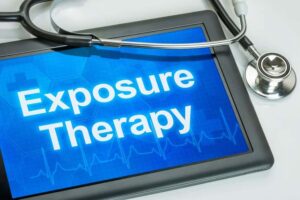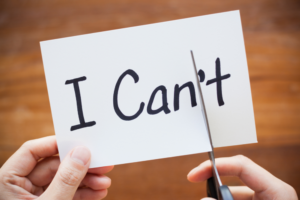Obsessive Compulsive Disorder (OCD) is a mental disorder that causes people to have obsessive thoughts and behaviors. It’s estimated that around 1 in 100 people experience OCD at some point in their lives. While there is no cure for OCD, there are various treatments available that can help relieve the symptoms. In this blog post, we will explore the different types of harmful OCD treatment and what works best for each individual.
Contents
What Are Harm OCD Treatment?

There are many types of treatment for OCD, but the most common are cognitive-behavioral therapy (CBT) and exposure and response prevention (ERP). CBT is a type of therapy that helps people learn how to change their thoughts and behaviors. ERP helps people avoid things that make them anxious. Other treatments include medication, talk therapy, and neurofeedback. Some people prefer one type of treatment over another, while others may try several different types of treatments before finding one that works best for them. There is no one right answer when it comes to finding the right treatment for OCD. Each person needs to explore options and find what works best for them.
Types of OCD Harm Treatment
There are several different types of OCD treatment, and each one is designed to help the individual with OCD in specific ways. Some people may need medication to treat their OCD, while others may need cognitive-behavioral therapy (CBT). Each type of treatment has its benefits and drawbacks.
Medications

The first type of treatment for OCD is typically medication. Many people with OCD require medication to control the symptoms of the disorder. There are many different types of medications available that can be used to treat OCD, and each person’s needs may vary. It is important to speak with a doctor about which medications are best for treating your particular case. Some of the most common types of medications used to treat OCD include SSRIs (such as fluoxetine or sertraline), SNRIs (such as venlafaxine or duloxetine), and TCAs (such as amitriptyline or clomipramine).
Cognitive-Behavioral Therapy
Cognitive-behavioral therapy (CBT) is another type of treatment that is often effective for people with OCD. CBT helps people identify and address the thoughts, feelings, and behaviors that contribute to their OCD. It is often combined with medication and can be delivered in a variety of formats, including individual sessions, group sessions, and online therapy. CBT is extremely effective in treating OCD and is more effective than medication alone in some cases. CBT also has the benefit of being relatively short-term, so it can be effective in treating acute episodes of OCD.
Exposure and Response Therapy

Some of the most common types of OCD treatment involve exposure and response therapy (ERP). ERP is a form of CBT that focuses on helping people learn how to tolerate and manage fears and anxiety triggers. People with OCD are often hypersensitive to certain things, such as sounds, images, smells, or thoughts. During ERT, the individual is typically exposed to their fear or anxiety trigger in a safe environment. After the trigger is experienced, the person then responds by doing something that reduces their anxiety. This process is repeated until the person can tolerate the trigger without experiencing significant levels of anxiety.
Support Groups
OCD support groups can be an important part of treatment for many people. Support groups offer individuals with OCD a place to share their experiences and connect with other individuals who have also struggled with OCD. Group therapy can be extremely effective in helping people with OCD reach a level of stability and self-awareness that can be difficult to achieve on their own. Some of the most popular OCD support groups available include the OCD Foundation’s online forum and the National Association for Mental Illness (NAMI) online forum.
Lifestyle Changes
Some of the most common types of OCD treatment involve lifestyle changes. Lifestyle changes can include modifying your diet, exercising, and avoiding triggers. Lifestyle changes can be extremely effective in reducing symptoms of OCD, and they are often the first step in treatment. It is important to speak with a doctor about which lifestyle changes are best for you and to be patient while undergoing these changes.
These are just a few of the most common types of OCD treatment. There are several other treatment options available, and each one may be best suited for specific individuals. It is important to speak with a doctor about your specific needs and to consider all of the available options for treating your OCD.
How Effective are OCD Treatments?

There is no one-size-fits-all approach to treating OCD, as the best treatment plan will depend on the individual’s specific symptoms and history. However, some common types of OCD treatments include cognitive behavioral therapy (CBT), medication, and exposure and response prevention (ERP).
The effectiveness of OCD treatments can vary depending on the individual, but most studies suggest that CBT and medication are both effective in treating OCD. CBT is known to be particularly effective in treating the cognitive component of the disorder, while medication can help to improve specific symptoms. ERP is also commonly used in treatment and is moderately effective in reducing OCD symptoms. However, due to its high cost and potential side effects, it is not typically recommended as the first option for people with OCD.
According to some of the reports, there are encouraging results with CBT, medication, and exposure and response prevention. However, more research is needed to confirm these findings. Many times, different types of OCD treatments are effective for different individuals, which suggests that there is not one “right” way to treat OCD.
Cost of Harm OCD Treatment
The cost of OCD treatment is typically quite high, as the disorder requires a great deal of professional care. The most common form of OCD treatment is medication, and these costs can range from around $50 per week to upwards of $1,000 per month. In addition, many people require group therapy sessions and other forms of support to help them manage their disorder. These costs can add up quickly, and some people may require more than one round of treatment to achieve lasting relief.
Some of the factors that can surely affect the cost of OCD treatment include :
The severity of the disorder:
One of the main factors that can affect the cost of OCD treatment is the severity of the disorder. People with more severe forms of OCD typically require a greater level of professional care, and this can lead to higher costs associated with their treatment.
The type of OCD:
There are many different types of OCD, and each can require a different form of treatment. This means that the cost of treating OCD can vary depending on the specific condition being treated.
The location of the treatment center:
Some people may be better served by receiving treatment in a local hospital or clinic, while others may prefer a more specialized facility that offers more comprehensive care. This can also affect the cost of treatment, as facilities that offer more comprehensive services will typically charge higher fees.
The length of treatment:
The length of treatment can also affect the cost of OCD treatment. People who require longer-term care may require more frequent visits to their treatment center, and this will add to the overall expense. There can also be additional costs associated with specialty treatments, such as cognitive behavioral therapy (CBT).
Side Effects of Harm OCD Treatment

The side effects of OCD treatment vary depending on the specific treatment used. However, the most common side effects of OCD treatment include:
Elimination anxiety. This is a common side effect of OCD treatment, as patients may experience extreme anxiety when they have to make any kind of change in their personal lives. This is a common side effect of OCD treatment, as patients may experience extreme anxiety when they have to make any kind of change in their personal lives.
Relapse. Patients can often relapse after receiving OCD treatment, as their symptoms may return with a vengeance once they stop taking care of them.
Depression and anxiety. Many people who receive OCD treatment experience significant improvements in their mental health, but this isn’t always the case. In some cases, people who receive OCD treatment may experience increased levels of depression and anxiety.
Weight gain, or weight loss (weight loss program). This is unfortunately common among people who undergo OCD treatment, as they may become obsessed with their weight and attempt to change their eating habits to lose weight.
Hair loss. Many people with OCD suffer from hair loss, which can be a result of their obsessive thoughts about their hair.
Trouble sleeping. People with OCD often have trouble sleeping due to their obsessions and fears.
Conclusion
OCD is a very common mental illness that can be difficult to live with. There are many different types of treatment available, and the best one for you will depend on your specific needs. If you are looking for an overview of the different types of treatments available, please see our article on harm OCD treatment: Types of Treatment. Once you have found a type of treatment that is right for you, speak with your therapist or doctor about starting it.
For more information and guidance, please contact OCDMantra. OCD is a mental health disorder characterized by obsessions and compulsions. If you have any queries regarding OCD treatment, ERP therapy experienced therapists at OCDMantra can help: Book a trial OD therapy session.


